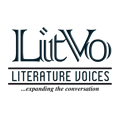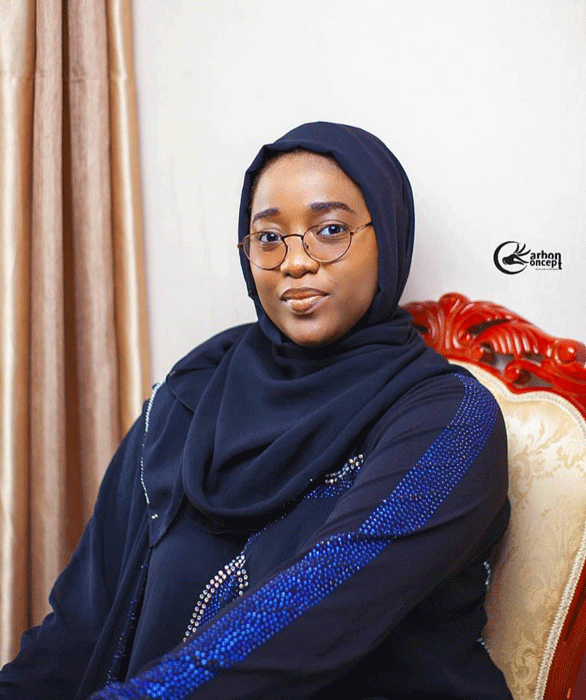“Writers must not always claim to be Moral Champions” AN INTERVIEW WITH JULIUS BOKORU
By Phateema Salihu (Literature Voices)
Julius Bokoru is the author of the book ‘The Angel That Was Always There’. This fictional work catapults him into the reminiscence of his childhood and the touching role of the angel that was always there. Beyond his literary prowess, Julius is a social commentator and a media practitioner. He is currently the Personal Assistant on Media and Public Affairs to Chief Timipre Sylva, Nigeria’s Minister of State for Petroleum Resources. Also, he is a columnist with the Nigerian Voice.
Phateema: Hello Julius, I’m seriously resisting the urge to dive into asking my questions all at once but first things first. I’d like to appreciate you for taking time out of your busy schedule to grant this interview. By 2012, you were a participant of the 2012 Fidelity Bank Creative Writers’ Workshop and also, by same year, the government of Bayelsa State named you among the 50 most influential persons for your literary contributions; that’s after being a resident writer at the Ebedi International Writers’ Residency. When did you start writing and how was that like for you to have carved a niche for yourself at such a young age already?
Julius: I started writing really early. Initially it was purely for cathartic purposes then but sometimes around 2008 it started appearing serious. Of course, getting in the (literary) spotlight was exciting, I always dreamt about it and that dream propelled me to read more and write more stuffs of quality. It was really not easy breaking in, and when I mean breaking in, I don’t mean stardom, but breaking in in this context is that point you begin to develop some confidence in your writing, you begin to get a few more acceptance letters here and there. I always dreamt, too, to see my name on print on a novel or collection of poems. So, when it happened, when I got those choice invites, when I attended those exciting workshops, I knew I could now trust my writing, I knew I had broken in or close to it and I knew I was now a more serious and confident writer than before. So, it was exciting.
Phateema: You said your mother’s death triggered your writing. Has there always been a voice in your head that needed to be heard but was only actualized at the demise of your mother? Was it the grief that spurred this literary actualization or rather a need to set her achievements in stone?
Julius: I feel I always had the inherent will to write even before my mother’s passing. It was like an unopened application my mother’s death activated. I do know, however, that if we assume to be in an alternate universe and my mother didn’t die, I strongly feel my writing would have had far less melancholy than it currently has. It rewired me so much I now write best when sober. But I would have been a writer all the same. It was there all the while, like a newly hatched chick that would one day inevitably make bold attempts at flying.
Phateema: You speak with such depth and I have no reason but to believe you. I can also imagine your happiness the first time you must have actualised that dream of yours, seeing your name on print. Your book “The angel that was always there” is the story of your life. It sorts of immortalizes your mother and all the sacrifices she made for you. How has that experience shaped you as a man?
Julius: It made me realize the value of sacrifice, a virtue the world desperately needs. It made me persevere more, because I think that in some way, I have taken the baton from my mother and attempted to finish the race she started of creating a better world. She rubbed off her deep humanity on me and it has stuck; influencing every single decision I have ever made.
Phateema: You happen to be into politics and I noticed you don’t attract drama which is a rare attribute of the normal Nigerian man in politics; how have you managed to keep such low profile while still impacting positive change in your society?
Julius: (Laughter). I think I attract drama when it comes to the US elections and those hullabaloos about conservatives and leftists. But, trying not to be further controversial and dramatic is deliberate because I’m the spokesman to a minister, sometimes your drama may seem the minister’s drama.
Phateema: (Laughter). I don’t blame you really. I’ve seen some of your posts on Facebook showing concern about how the society is fast approaching doomsday; especially now, with the trend in the recent rise in rape cases. Many have come out to either justify or try to victimise the victims. In one of your recent posts on Facebook, you insinuated that few years from now, people will no longer condemn even paedophiles and bestiality because it seems the liberals are winning in courts and elsewhere with their agenda. This is quite saddening to note as I also believe it is a reality that is not far from us with the way the society is evolving. Would you like to throw more light on that and share what made you come to that realisation?
Julius: We now have a near complete moral breakdown in society; marriages crashing as quickly as they start. More violence, the world seems to be upside down and logic is out of the window. All I’m trying to do is to oppose what I perceive to be a frightening societal anarchy.
Phateema: You have a whole lot of essays that have found their niche in Brittle Paper. Most of your writings are laced with poetic cadence and a beautiful flow as you read them. In one of your essays, “of seas and rivers”, you described rivers and seas as thus:
“I notice today for the first time that, unlike the rivers, oceans and seas do not have a rhythmic flow. Sections of water move as they please, splash as they please and churn as they please. They are strong, wild and free. They would host many great battles and captivate more lovers. They would enchant more men and make life seem short and fragile. They would feed more stomachs and swallow many suns.”
I am forced to ask what pushes your imaginations this deeply to write about something as common as water in such a powerful way
Julius: I grew up in Rivers and Bayelsa states; so, naturally I grew up around a lot of water bodies. They became my first attraction; my first real connection to nature which I believe to be a whole new barely explored world within our world.
Apart from its aesthetic beauty, which I frequently harp on, there is also its fundamental connection with time. When you go to the open sea there is almost no concept of time apart from day and night which can repeat itself to infinity without anything changing. So, if you think about that you realize that time is nothing to nature and the River, especially Time, perhaps, only exists for humans.
Phateema: Wow, I can never look at the river or any water body the same again.
Julius: Hehehe
Phateema: How about managing writing and politics. For example, navigating the furrows of corruption and the retention of moral balance of the writer?
Julius: Managing writing and politics have been difficult. In my case, I think the writing is suffering. There is always insufficient time, insufficient space and insufficient clarity of mind. I do not write as much as I imagined to be writing this period. It’s impossible, really, balancing the two. As for the moral balance, I think that writers must not always claim to be moral champions. I have seen very, very dishonest writers. I don’t believe I am a very moral person, but I do know that I am taking compromises now than before I joined politics, I never believed I would take.
Phateema: When you say dishonest writers, do you mean writers who write compromising works to gain either audience or favour from the Western world or those who exaggerate the truth for reasons best known to them? There was a debate recently online on why Nigerian writers especially need to curb the amount of writing on only the ills, insecurities and other backwardness of our societies.
Julius: I mean dishonest, as in lying, fraud, cheating, blackmail, etc., although, in a more fundamental way, there are still writers who write for the liberal west in exchange for fame and all that. That, too, is another form of insincerity.
Phateema: Exactly. But really can we blame them? I mean if our Nigerian government is as favourable as the West is to our writers, I don’t think we’ll have to follow those dirty ways to either fame or whatnot. Most of our very best writers are either enjoying scholarships or very good privileges abroad. Okay moving on, your essay “On Dali, time and the matrix of existence”, there’s a paragraph that reads:
“But I have since realized, sadly, that it isn’t possible to contemplate both the beginning of time and the end of time without striking heretical chords, for we live in a society where pondering about time beyond contemporary existence is heresy.”
Do you still hold onto that realisation or you can have these kinds of conversation freely now without minding what the society will say or make of such boldness?
Julius: I no longer believe pondering about time beyond contemporary existence is heresy. I still hold my fascination and curiosity on time. I still discuss it even publicly. The difference between my current thoughts on science and the one during this essay is that I now believe science and religion can actually meet, harmonize, mix and form a solid concord.
Phateema: You recently got married to a beautiful woman and you don’t shy away from showing her admiration publicly and how she has influenced you to be a better man. Will you also attest to the fact that indeed, behind every successful man, there’s a woman? How has she succeeded in making you a better version of yourself?
Julius: Na wao. You wan burn my cable further? (Laughter). She has shown me more dimensions to life; more interesting perspectives and in adjusting to her I find a more mature, tamed man arising. There is a big difference between when I met her and now and that difference has been overwhelmingly positive.
Phateema: This is very beautiful Julius. May you both continue to be better versions of each other and on this note I’d like to thank you for your time. I wish you realize more of your bigger fantasies and dreams.
Julius: Amen. Thank you too.
Phateema Salihu is a poet and activist who has been described as a hurricane because of her passion and dedication to literature and art. She is a member of the Hill-Top Creative Arts Foundation and one of the rising literary voices emerging from Niger State. Her works have been published or are forthcoming in Praxis Magazine, Brittle Papers, Kalahari Review and so on. She is the moderator, Hill-Top Weekly Book Chat Review. She has published a collection of poems titled: SKETCHES. Facebook/Instagram: Phateema Salihu, email: salihufatima3@gmail.com











Leave a Review